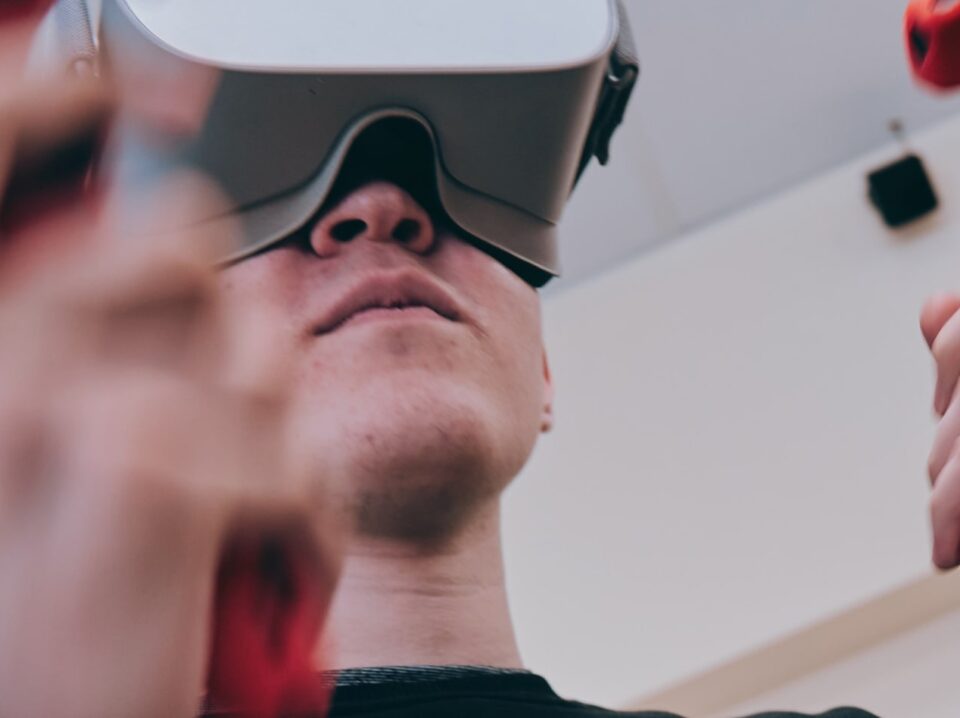Building Europe's Leading Quantum Computing Hardware Facility in Slovakia
Revolutionizing Industries with Quantum Computing Excellence
Driving breakthroughs in energy, pharmaceuticals, space, and materials science through cutting-edge quantum technology.
Join us in building Europe's leading quantum computing hardware facility in Slovakia, driving the next wave of innovation across industries.
DeepTech Job Creation Potential
High-Skilled Jobs in Slovakia’s Growing Tech Sector
0
+
Driving Future Innovation
Projected Patents Across Various Industries in 10 Years
0
K+
High-Impact Industrial Applications
0
+

Building Europe's Leading Quantum Computing Hardware Facility in Slovakia
The Final Frontier aims to establish Europe’s most advanced quantum computing hardware facility in Slovakia. This €2.8B initiative will create a strategic bridge between Asian investment and European markets, focusing on manufacturing critical quantum computing components for the next generation of quantum computers. Our facility will serve the rapidly growing European quantum computing market while establishing Slovakia as a key player in the global quantum computing landscape.
Empowering Technological Advancements with Quantum Solutions
Quantum Hardware Integration
Seamlessly integrating advanced quantum components into Europe's tech landscape, enabling industries to harness quantum power for enhanced processing a
Accelerated Drug Discovery
Driving rapid advancements in pharmaceutical research with quantum simulations, reducing the time and cost of drug development, and enabling precise mo
Advanced Material Innovation
Developing and testing next-generation materials for semiconductors, energy storage, and aerospace, using the power of quantum technology to explore ne
Industries Impacted
Space Industry Impact Through Quantum Computing
The facility’s focus on quantum hardware development will establish Slovakia as a leading provider of critical components for the space industry, positioning Europe at the forefront of space innovation. The manufacturing of components like control systems and cryogenic equipment essential for quantum computers will support not only scientific research but also commercial space ventures, driving Europe’s technological sovereignty in the space sector. This transformation will open new possibilities for Europe’s role in global space exploration, reduce dependency on non-EU technology, and foster collaborations with major space research centers and private enterprises, ultimately contributing to a new era of space exploration and innovation.
Space Mission Planning
- Trajectory Optimization: Quantum algorithms can calculate optimal trajectories for space missions far faster and more accurately than classical computers. This includes minimizing fuel consumption, adjusting course paths, and navigating complex gravitational fields, enabling more efficient and longer-range missions.
- Launch Window Optimization: Determining the best possible launch windows involves analyzing a vast number of variables, including planetary alignments, weather conditions, and space traffic. Quantum computing’s superior processing power can swiftly simulate and identify the ideal launch windows for space missions.
Satellite Operations
- Constellation Management: Managing satellite constellations requires real-time adjustments to ensure coverage, communication, and collision avoidance. Quantum computing allows for real-time optimization of satellite orbits, ensuring more stable and efficient communication networks.
- Space Debris Tracking and Avoidance: The increasing amount of space debris poses significant risks to satellites and manned missions. Quantum computers can model and predict the movements of thousands of debris fragments, facilitating timely and precise collision avoidance strategies.
- Communication Optimization: Quantum-enabled optimization algorithms can improve satellite communication networks, allowing for more secure and efficient data transfer. This is particularly crucial for global internet coverage and secure government communications.
Space Research
- Gravitational Field Modeling: Quantum computing enables precise simulations of gravitational fields, aiding in the planning of missions to planets, moons, and other celestial bodies. These simulations can provide new insights into the structure of gravitational anomalies, impacting navigation and exploration.
- Astronomical Data Analysis: The vast datasets generated by space telescopes and observatories can be analyzed more efficiently using quantum algorithms. This allows for the detection of patterns, identification of exoplanets, and analysis of cosmic phenomena like black holes or gamma-ray bursts.
- Dark Matter and Energy Research: Quantum computing can handle the complex calculations required to understand dark matter and dark energy, potentially unlocking answers to fundamental questions about the universe’s structure and expansion.
- Cosmological Simulations: Modeling the early universe and cosmic phenomena like galaxy formation and supernova events requires massive computational power. Quantum computing’s ability to handle these simulations will lead to breakthroughs in astrophysics.
Space Manufacturing
- Materials Design for Extreme Conditions: Developing materials capable of withstanding the harsh conditions of space, including extreme temperatures and radiation, requires detailed atomic simulations. Quantum computing can simulate and design new materials with precision, leading to better spacecraft, satellites, and exploration tools.
- In-Space Manufacturing Optimization: With the advent of 3D printing and manufacturing in space, quantum computers can optimize production processes, minimizing material waste and maximizing efficiency. This can lead to the production of components directly in orbit or on other planets, reducing the need for costly supply missions.
- Resource Utilization Planning: Quantum computing will play a crucial role in planning resource utilization in space, such as mining asteroids or lunar materials. These calculations involve optimizing extraction, processing, and transportation of resources, tasks that quantum computers can manage more accurately and quickly than classical systems.
Pharmaceutical Research Revolutionized
The integration of quantum computing into pharmaceutical research will not only speed up the development of new therapies but also lower costs and risks associated with drug trials. This technology will enable pharmaceutical companies to bring life-saving drugs to market more quickly, benefiting patients and healthcare systems alike. Key benefits include:
- Faster Time-to-Market: With accelerated drug discovery and trial processes, life-saving medications reach patients sooner.
- Cost Efficiency: Reduced R&D expenditure through efficient simulations and optimized clinical trials.
- Innovation Boost: Access to quantum-enhanced research tools fuels innovation in drug development, making Europe a hub for cutting-edge pharmaceutical research.
Drug Discovery
- Protein Folding Simulations: Understanding how proteins fold and interact is crucial for drug design. Quantum computers can simulate complex molecular structures and interactions with unprecedented speed and accuracy, helping scientists identify potential drug candidates much faster than traditional methods.
- Molecular Interaction Analysis: Quantum algorithms allow precise simulations of chemical reactions, enabling researchers to explore molecular binding sites and predict drug efficacy. This accelerates the discovery of new drugs, particularly in treating complex diseases like cancer or Alzheimer’s.
- Reduction in R&D Costs: The lengthy and expensive drug discovery process can be significantly shortened. Quantum computing can analyze large chemical libraries, identify promising compounds, and eliminate ineffective candidates early on, saving both time and resources.
Clinical Trials
- Optimized Patient Selection: Quantum computing can analyze vast datasets of genetic, demographic, and clinical information to identify ideal patient groups for clinical trials. This precision reduces the risk of biased results and ensures more reliable outcomes.
- Drug Response Modeling: Quantum simulations can predict how different patient populations might respond to a drug, allowing for adjustments in trial parameters and dosage requirements. This increases the chances of trial success and minimizes the need for multiple costly phases.
- Adaptive Trial Design: Real-time analysis of trial data with quantum computing enables adaptive trial designs. Researchers can modify study protocols mid-trial based on emerging insights, ensuring more efficient and accurate testing.
Personalized Medicine
- Tailored Treatments: Quantum computing’s ability to process complex biological data enables the creation of personalized treatment plans based on an individual’s unique genetic and molecular profile. This approach promises higher success rates and fewer side effects, as treatments can be customized to the patient’s specific needs.
- Predictive Diagnostics: By analyzing genetic and medical data, quantum algorithms can identify predispositions to diseases and recommend preventive measures. This empowers healthcare providers to shift from reactive to proactive healthcare, improving overall patient outcomes.
- Genomic Sequencing: Quantum computing enhances the speed and accuracy of genomic sequencing, enabling detailed insights into genetic disorders. This accelerates the development of gene therapies and targeted treatments, revolutionizing fields like oncology and rare genetic conditions.
Strategic Impact on the Pharmaceutical Sector The integration of quantum computing into pharmaceutical research will not only speed up the development of new therapies but also lower costs and risks associated with drug trials. This technology will enable pharmaceutical companies to bring life-saving drugs to market more quickly, benefiting patients and healthcare systems alike. Key benefits include:
- Faster Time-to-Market: With accelerated drug discovery and trial processes, life-saving medications reach patients sooner.
- Cost Efficiency: Reduced R&D expenditure through efficient simulations and optimized clinical trials.
- Innovation Boost: Access to quantum-enhanced research tools fuels innovation in drug development, making Europe a hub for cutting-edge pharmaceutical research.
Key Stakeholders and Interest
- Major Pharmaceutical Companies: Global leaders in pharmaceuticals will seek to integrate quantum technology into their research pipelines.
- Biotechnology Startups: Innovative startups focused on niche treatments or personalized medicine are likely to benefit from early access to quantum-powered insights.
- Research Institutions: Academic and research centers involved in pharmacology and genetics will leverage quantum computing for advanced studies.
- Regulatory Agencies: Authorities monitoring clinical trials will benefit from more accurate data, enabling faster and safer drug approvals.
Quantum Computing's Impact on Chemical and Materials Science
Quantum computing is set to revolutionize chemical and materials science by providing deeper insights into molecular behavior, enabling the discovery of advanced materials, and optimizing industrial processes. This technological leap will significantly enhance efficiency and innovation in fields like energy storage, semiconductors, and manufacturing.
Materials Discovery
- Advanced Battery Materials: Quantum simulations allow scientists to explore new battery chemistries at the atomic level, leading to breakthroughs in energy storage. Quantum computing can identify materials with superior energy density, stability, and efficiency, driving the next generation of batteries for electric vehicles and renewable energy systems.
- High-Performance Semiconductors: The design of new semiconductors with improved performance characteristics is made easier with quantum computing. By simulating the electronic properties of materials, quantum algorithms can identify optimal materials for faster and more efficient chips, supporting advancements in computing and communication technologies.
- Lightweight and Strong Alloys: Quantum simulations can predict how materials will perform under various conditions, guiding the creation of lighter and stronger alloys for aerospace, automotive, and construction applications.
Molecular Modeling
- Simulation of Chemical Reactions: Quantum computing’s ability to simulate chemical reactions at a molecular level provides insights that are impossible to achieve with classical computers. This capability enables chemists to understand complex reaction mechanisms, predict outcomes, and refine processes for chemical manufacturing.
- Property Prediction: Quantum models can accurately predict the properties of new compounds, including their stability, conductivity, and reactivity. This enables faster development of materials for specific industrial applications, from nanomaterials to coatings and adhesives.
- Catalyst Development: Designing more effective catalysts requires understanding molecular interactions precisely. Quantum computing can accelerate the discovery of catalysts that enhance chemical reactions, reduce energy consumption, and minimize byproduct formation in industrial processes.
Process Optimization
- Industrial Manufacturing: Quantum computing can optimize manufacturing processes by simulating production lines, minimizing waste, and improving resource efficiency. This includes everything from chemical synthesis to material processing, ensuring more sustainable and cost-effective manufacturing.
- Supply Chain Efficiency: Quantum algorithms can analyze complex supply chain networks, identifying inefficiencies and optimizing logistics for raw materials, reducing costs and environmental impact.
- Predictive Maintenance: In chemical plants and manufacturing facilities, predictive maintenance becomes more accurate with quantum computing. Advanced simulations can predict equipment wear and tear, enabling timely maintenance that prevents costly downtimes.
Strategic Benefits in Chemical and Materials Science
The adoption of quantum computing in this field will drive significant advancements, positioning Europe as a leader in sustainable and high-tech material innovation. Key advantages include:
- Faster R&D Cycles: Quantum computing enables faster prototyping and testing of materials, accelerating the research and development timeline.
- Cost Reduction: Accurate simulations reduce the need for expensive experimental testing, lowering costs for chemical and material production.
- Sustainability: Quantum-powered optimization results in more efficient processes, reducing waste and energy consumption, and supporting Europe’s sustainability goals.
Key Stakeholders and Interest:
- Automotive and Aerospace Industries: Interested in lightweight, durable materials for vehicle and aircraft design, enhancing fuel efficiency and safety.
- Electronics Manufacturers: Semiconductor companies will benefit from advancements in material properties, driving innovation in consumer electronics and computing hardware.
- Energy Sector: New battery materials and chemical catalysts are crucial for renewable energy storage and efficiency, attracting interest from energy companies and grid operators.
- Chemical Industry Leaders: Chemical manufacturers seeking to improve processes and develop new products will leverage quantum computing for greater efficiency and innovation.
Industrial Optimization and Transportation Powered by Quantum Computing
Quantum computing is poised to redefine industrial efficiency and logistics by optimizing manufacturing processes, supply chains, and transportation networks. This new level of precision and speed will reduce costs, enhance productivity, and support sustainability across multiple sectors.
Strategic Benefits for Industrial and Transportation Sectors
The implementation of quantum computing in these industries will drive innovation, leading to smarter manufacturing and logistics solutions. Key advantages include:
Manufacturing Efficiency
- Process Optimization: Quantum simulations can streamline complex manufacturing processes, identifying optimal production methods that minimize waste and maximize output. This includes optimizing assembly lines, reducing energy consumption, and improving resource allocation, leading to more cost-effective and sustainable manufacturing.
- Quality Control and Defect Detection: Quantum algorithms can enhance quality control by analyzing data from sensors and imaging systems in real time. This results in the early detection of defects, reducing waste and ensuring consistent product quality.
- Predictive Maintenance: Advanced predictive maintenance models, powered by quantum computing, can forecast equipment failures before they occur. By simulating the wear and tear of machinery, companies can conduct maintenance proactively, minimizing costly downtimes and extending the life of expensive equipment.
Supply Chain and Logistics
- Supply Chain Optimization: Managing global supply chains is a complex task, involving multiple variables like inventory levels, supplier reliability, and delivery times. Quantum algorithms can analyze these variables simultaneously, identifying bottlenecks, optimizing logistics, and ensuring that the right materials arrive at the right place, at the right time.
- Inventory Management: Quantum computing can optimize inventory levels by predicting demand patterns with greater accuracy. This leads to efficient stock management, minimizing overstocking and shortages, and enhancing overall supply chain efficiency.
- Resource Allocation: In industries where resources are limited or costs are high, quantum computing can optimize the allocation of raw materials and production inputs, ensuring that resources are used efficiently to maximize profitability.
Transportation and Mobility
- Real-Time Route Planning: Quantum computing can revolutionize route planning for logistics, delivery services, and public transportation. By considering traffic, weather, and road conditions simultaneously, quantum algorithms can determine the fastest and most efficient routes in real-time, reducing fuel consumption and delivery times.
- Fleet Management: For companies managing large fleets, quantum computing enables more effective scheduling and maintenance planning. By predicting optimal service times and routes, fleet operators can reduce operational costs and increase vehicle lifespan.
- Urban Mobility Solutions: Quantum-powered optimization can improve urban transportation networks by analyzing complex datasets, like commuter patterns, traffic flows, and transit schedules. This leads to better public transportation services, reduced congestion, and improved air quality in cities.
- Predictive Traffic Analysis: Quantum computing’s ability to handle massive datasets makes it ideal for predicting traffic trends. Municipalities can use these insights for better infrastructure planning, smarter traffic light controls, and proactive congestion management.
Strategic Benefits for Industrial and Transportation Sectors
The implementation of quantum computing in these industries will drive innovation, leading to smarter manufacturing and logistics solutions. Key advantages include:
- Cost Savings: Reduced waste and optimized processes lower production and operational costs, boosting profitability.
- Increased Productivity: Streamlined workflows and predictive maintenance enhance productivity across industries.
- Environmental Sustainability: More efficient supply chains and optimized transportation reduce energy consumption and carbon emissions, supporting sustainability initiatives.
- Customer Satisfaction: Faster delivery times, higher product quality, and reliable transportation networks improve the end-user experience, enhancing brand loyalty.
Key Stakeholders and Interest
- Manufacturers: Companies in automotive, aerospace, electronics, and consumer goods are keen to adopt quantum-enhanced manufacturing processes for better efficiency.
- Logistics Providers: Delivery and logistics companies can benefit from quantum-driven route planning and fleet management to improve service quality and reduce operational costs.
- Urban Planners and Governments: Municipalities and transportation authorities will leverage quantum technology to optimize urban mobility and manage public transportation networks.
- Transportation Companies: Railways, airlines, shipping, and freight companies will use quantum computing for fleet scheduling, route optimization, and predictive maintenance.
- Manufacturers: Companies in automotive, aerospace, electronics, and consumer goods are keen to adopt quantum-enhanced manufacturing processes for better efficiency.
- Logistics Providers: Delivery and logistics companies can benefit from quantum-driven route planning and fleet management to improve service quality and reduce operational costs.
- Urban Planners and Governments: Municipalities and transportation authorities will leverage quantum technology to optimize urban mobility and manage public transportation networks.
- Transportation Companies: Railways, airlines, shipping, and freight companies will use quantum computing for fleet scheduling, route optimization, and predictive maintenance.
Quantum Computing’s Impact on the Energy Sector
Quantum computing has the potential to transform the energy sector by optimizing power generation, enhancing grid stability, and advancing renewable energy technologies. These improvements will support the transition to a more sustainable, reliable, and efficient energy landscape.
Grid Optimization
- Power Distribution: Quantum computing can manage and optimize complex power distribution networks, balancing electricity loads across the grid to prevent outages and inefficiencies. This leads to more reliable energy delivery, especially during peak demand times or extreme weather conditions.
- Load Balancing: Quantum algorithms can predict energy demand patterns and adjust power generation accordingly, ensuring that supply matches demand in real-time. This minimizes energy waste and reduces operational costs for utilities.
- Energy Storage Management: Managing energy storage systems like batteries and pumped hydro storage is crucial for a stable grid. Quantum computing can optimize when and how energy is stored or released, maximizing storage efficiency and ensuring a steady energy supply.
Renewable Energy Enhancement
- Wind Farm Optimization: Quantum computing can analyze vast datasets, including wind patterns, terrain data, and weather forecasts, to optimize the placement and performance of wind turbines. This results in increased energy output and reduced maintenance costs, making wind power more competitive.
- Solar Panel Efficiency: Quantum algorithms enable precise simulations of solar panel behavior under various conditions, helping manufacturers design more efficient panels. Additionally, they can optimize the positioning and alignment of solar farms to maximize sunlight capture.
- Hydroelectric and Geothermal Optimization: Quantum simulations can optimize the efficiency of hydroelectric dams and geothermal plants by predicting water flow and heat extraction patterns. This leads to more effective renewable energy generation with minimal environmental impact.
Nuclear Fusion Research
- Plasma Containment Simulation: Quantum computing’s ability to simulate complex systems can aid in understanding and optimizing plasma behavior within fusion reactors. This knowledge is crucial for maintaining stable plasma and achieving sustained nuclear fusion, a major challenge in current research.
- Fusion Reaction Optimization: By analyzing the interactions of particles in a fusion environment, quantum computers can identify the best conditions for energy generation, accelerating the development of commercially viable fusion power plants.
- Material Durability: Quantum simulations help identify and develop materials that can withstand the extreme conditions within fusion reactors, ensuring the longevity and safety of critical components.
Strategic Benefits for the Energy Sector
Quantum computing’s integration into the energy sector will drive efficiency, innovation, and sustainability. Key benefits include:- Cost Reduction: Optimizing energy generation, distribution, and storage lowers operational costs for energy providers, leading to more affordable energy prices for consumers.
- Grid Stability: Enhanced load balancing and storage management increase grid resilience, reducing the risk of blackouts and ensuring a reliable energy supply.
- Sustainable Energy Transition: More efficient renewable energy technologies support the global shift towards clean energy, reducing carbon emissions and reliance on fossil fuels.
- Breakthroughs in Nuclear Fusion: Quantum computing’s role in advancing nuclear fusion research could lead to a nearly limitless and clean energy source, reshaping the energy landscape.
Key Stakeholders and Interest
- Energy Providers: Utilities and energy companies will use quantum computing to optimize power generation and distribution, enhancing efficiency and lowering costs.
- Renewable Energy Developers: Companies focused on wind, solar, hydro, and geothermal energy will benefit from improved site planning, technology development, and operational efficiency.
- Research Institutions: Academic and industrial research centers working on fusion energy and advanced materials will leverage quantum simulations to drive innovations.
- Government Agencies: National and European energy regulators will use quantum-powered insights to guide energy policies, support renewable initiatives, and ensure a secure energy supply.
AI and Machine Learning
The facility’s focus on quantum hardware development will position Slovakia as a central provider of advanced technology for the AI and Machine Learning sectors, empowering Europe to lead in intelligent systems and innovation. By producing quantum-optimized hardware for processing and analyzing vast datasets, the facility will support applications ranging from personalized medicine to autonomous systems, establishing Europe as a pivotal player in the AI landscape. This development will reduce reliance on non-EU technologies, foster partnerships with major AI research centers, and open new possibilities for cutting-edge applications in diverse fields.
Enhanced Model Training and Algorithm Development
- Model Training Acceleration: Quantum computing’s power can speed up the training of machine learning models, reducing time for complex tasks like language processing and computer vision from months to days. This enhancement will support more rapid advancements in critical AI applications.
- Algorithm Optimization: Quantum computing allows for complex optimization in AI algorithms, making computations faster and more efficient. This is essential for deploying AI on a large scale and reducing energy consumption, which has been a significant challenge in traditional deep learning systems.
Advanced Data Processing
- Big Data Analysis: Quantum algorithms can process and analyze vast quantities of data in real-time, uncovering hidden patterns in data-heavy fields such as finance, healthcare, and telecommunications. This efficiency opens doors for predictive analytics, fraud detection, and personalized customer insights that traditional computing struggles to handle effectively.
- Natural Language Processing (NLP) Enhancements: Quantum-powered NLP can process multiple language structures and complexities at unprecedented speeds, enhancing automated translation, sentiment analysis, and text generation. This progress will have significant implications for cross-border communication and knowledge-sharing.
Breakthroughs in Machine Learning and Deep Learning
- Deep Learning Model Efficiency: Quantum hardware can power advanced neural networks that improve the accuracy and efficiency of deep learning models used in areas like genomics, climate science, and security. These models can make faster, more precise predictions that directly impact real-world decision-making.
- Generative AI and Creative Applications: Quantum computing enhances generative models that simulate creative processes, supporting advancements in AI-generated art, music, and design. This capability is particularly relevant for industries exploring automated creativity and media personalization.
Real-Time Decision-Making and Autonomous Systems
- Autonomous System Optimization: Quantum computing can optimize decision-making for autonomous systems, from self-driving cars to industrial robots. This enhancement improves the safety, reliability, and efficiency of autonomous operations, enabling more intelligent and responsive systems.
- Smart City and IoT Integration: Quantum-powered AI can analyze data from thousands of IoT devices in smart city infrastructures, optimizing traffic, energy consumption, and public safety. This real-time processing capability supports efficient, AI-driven solutions for urban challenges.
Through these advancements, the quantum computing facility will empower Europe to lead in AI and Machine Learning, supporting applications that rely on processing power, rapid decision-making, and complex algorithm optimization. This strategic advantage will drive growth in industries that depend on AI, strengthen Europe’s technological sovereignty, and create innovative pathways for AI-powered transformation across fields.
0
%
Accelerated R&D Impact
Quantum computing technology accelerates breakthroughs in drug discovery, materials science, and industrial optimization, significantly reducing R&D timelines and costs
€
0
B
Cost Savings
Estimated yearly savings through optimized manufacturing, energy efficiency, and advanced material solutions enabled by quantum computing technologies.
Step-by-Step to Quantum Excellence
01
Phase
Phase 1 (0-18 Months)
Facility development, team assembly, and infrastructure setup.
Focus on establishing the foundational elements for the quantum hardware facility.
02
Phase
Phase 2 (19-36 Months)
Launching initial production capabilities and developing R&D facilities.
Emphasis on early-stage production and research integration.
03
Phase
Phase 3 (37-60 Months)
Scaling to full production, expanding market reach, and building an advanced R&D center.
Aiming for industry leadership and broad market influence.
projectsTransformative projects
powered by Neural Networks
2021
DeepVision: Enhancing image recognition with Neural Networks
Neural networks are a fundamental component of Artificial Intelligence (AI) systems Integrating neural network models into existing systems or software applications, enabling businesses to le
2023
AutoDrive: Autonomous vehicle navigation with advanced Neural Networks
Integrating neural network models into existing systems or software applications, enabling businesses to leverage AI capabilities seamlessly. In today’s fast-paced and data-driven world
2023
HealthCareAI: Personalized diagnostics and treatment recommendations with Neural Networks
Integrating neural network models into existing systems or software applications, enabling businesses to leverage AI capabilities seamlessly. In today’s fast-paced and data-driven world
Is Artificial Intelligence accessible to businesses of all sizes
Yes, AI solutions are becoming increasingly accessible to businesses .







